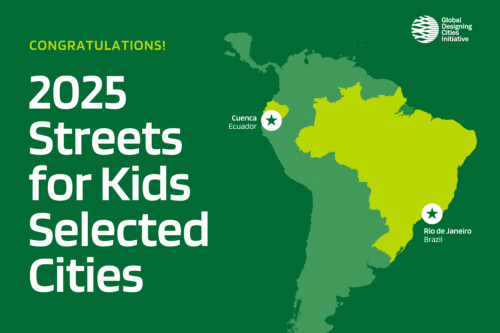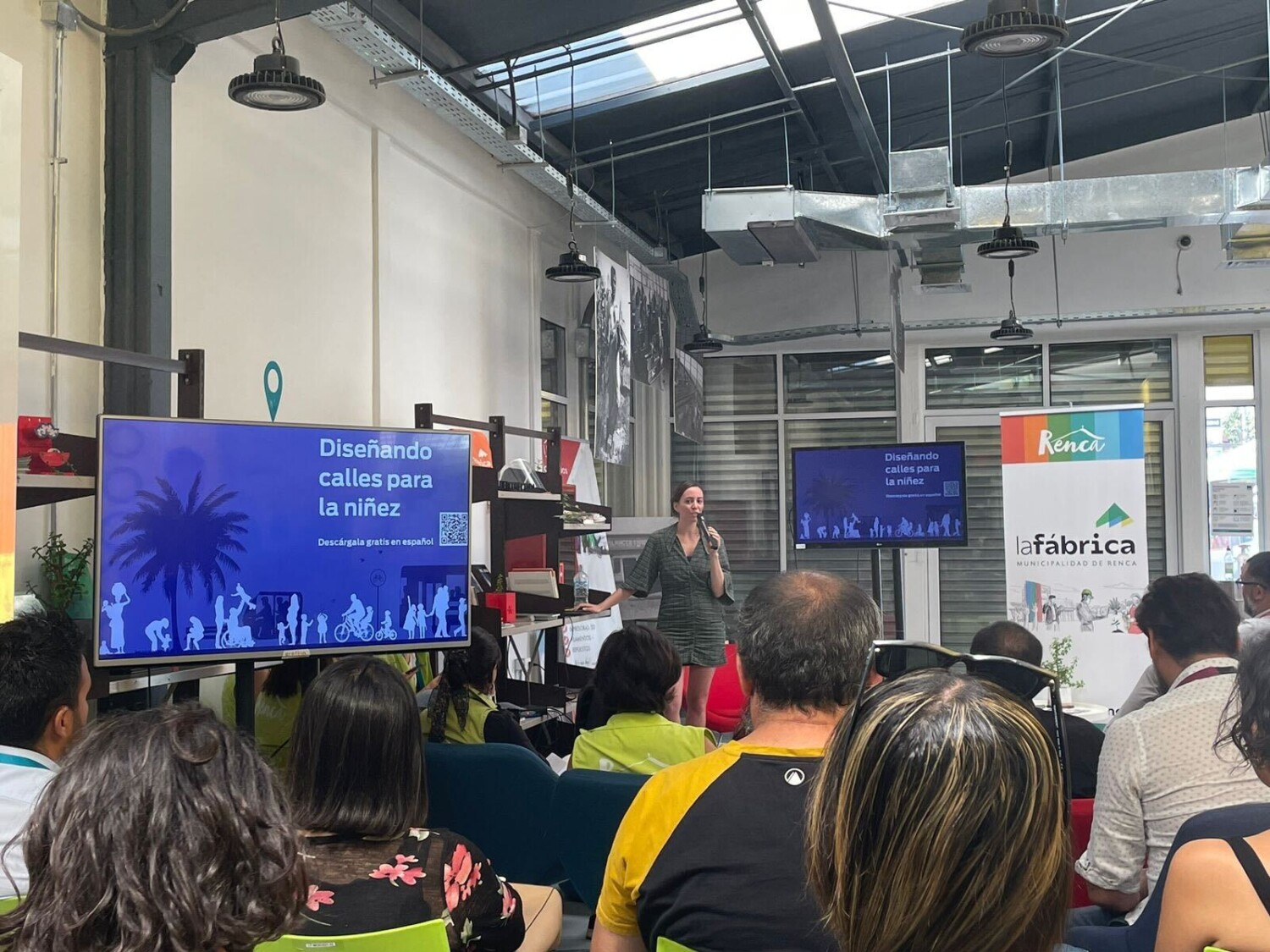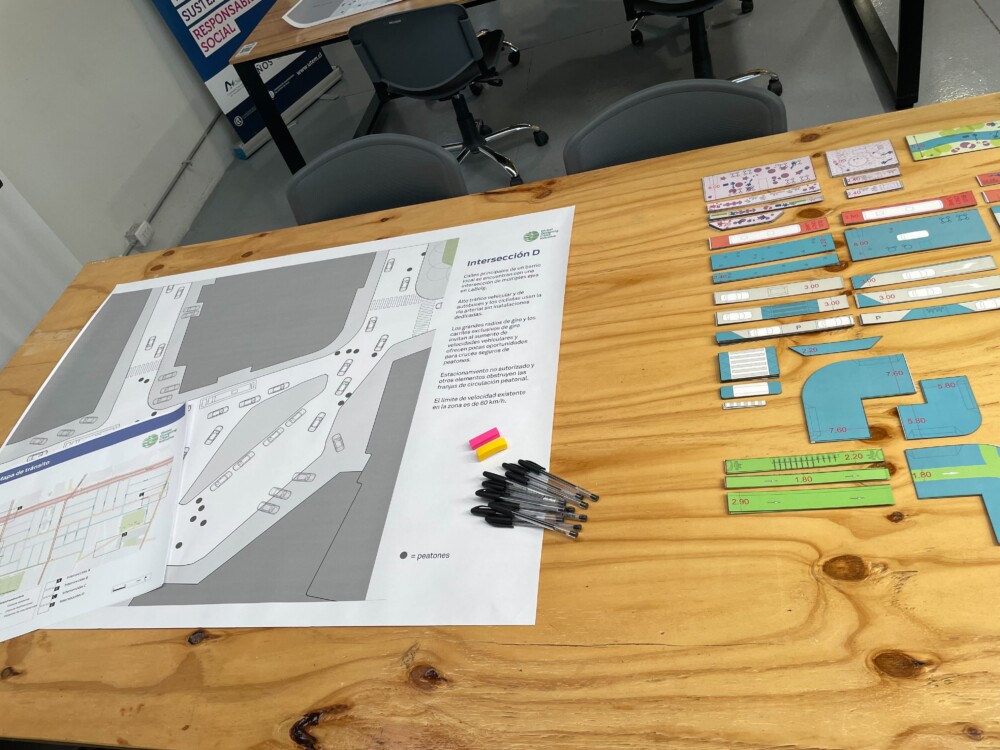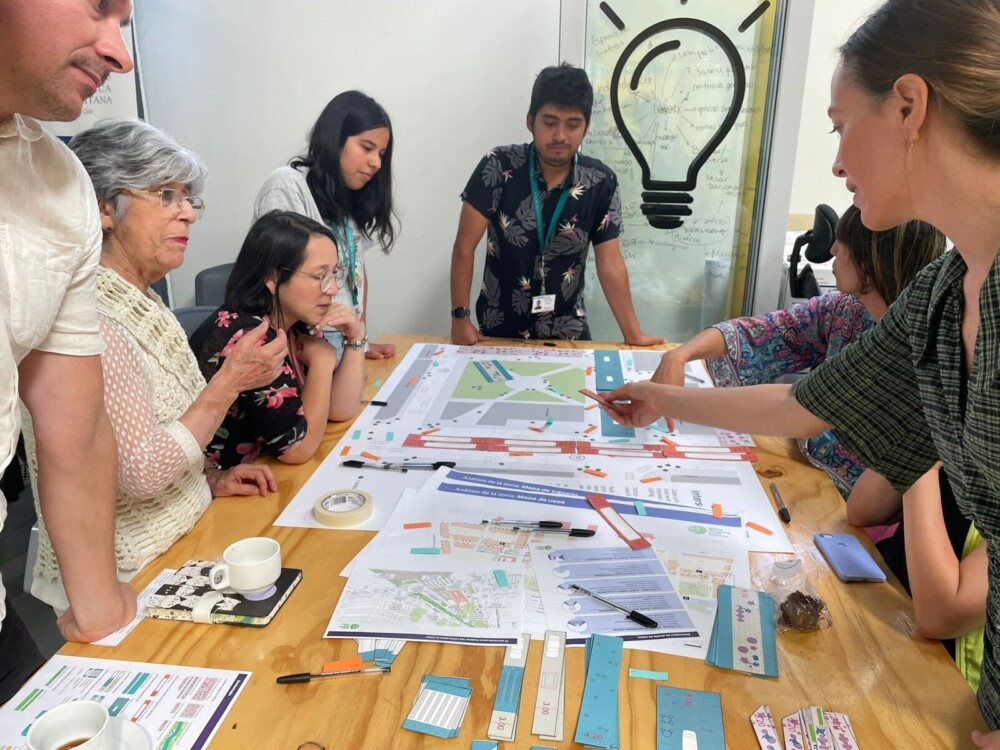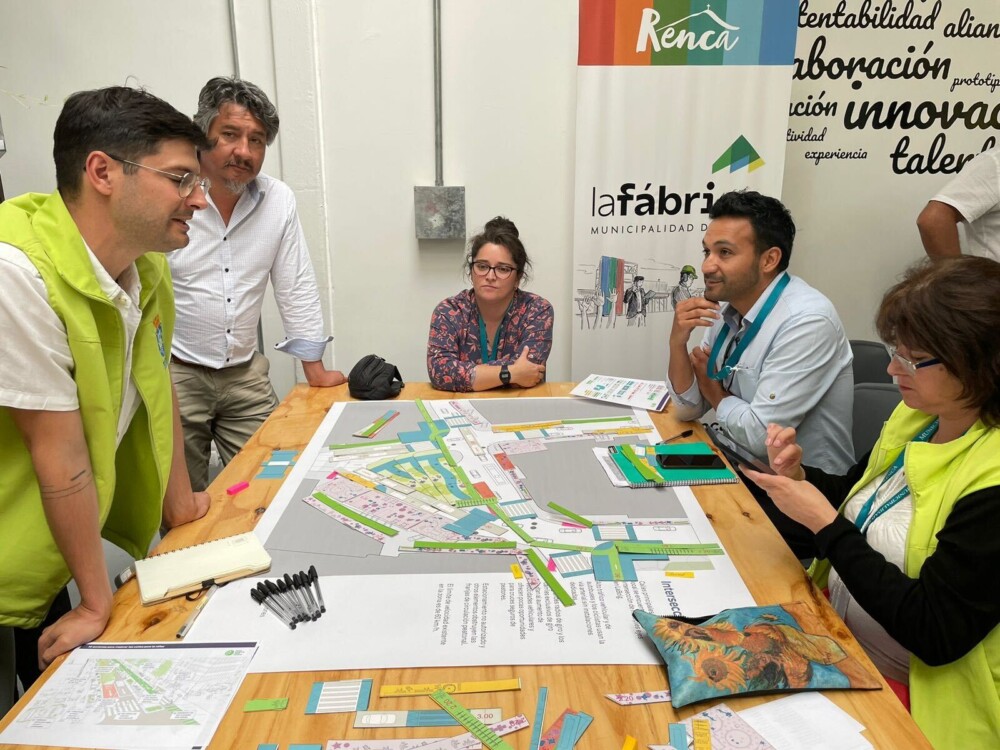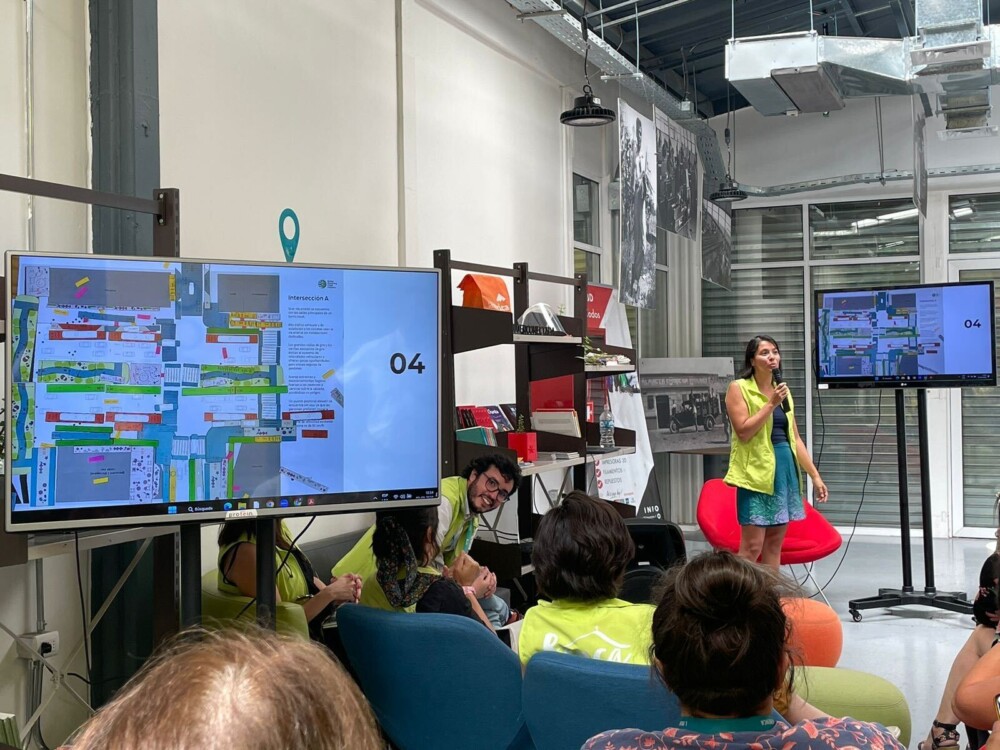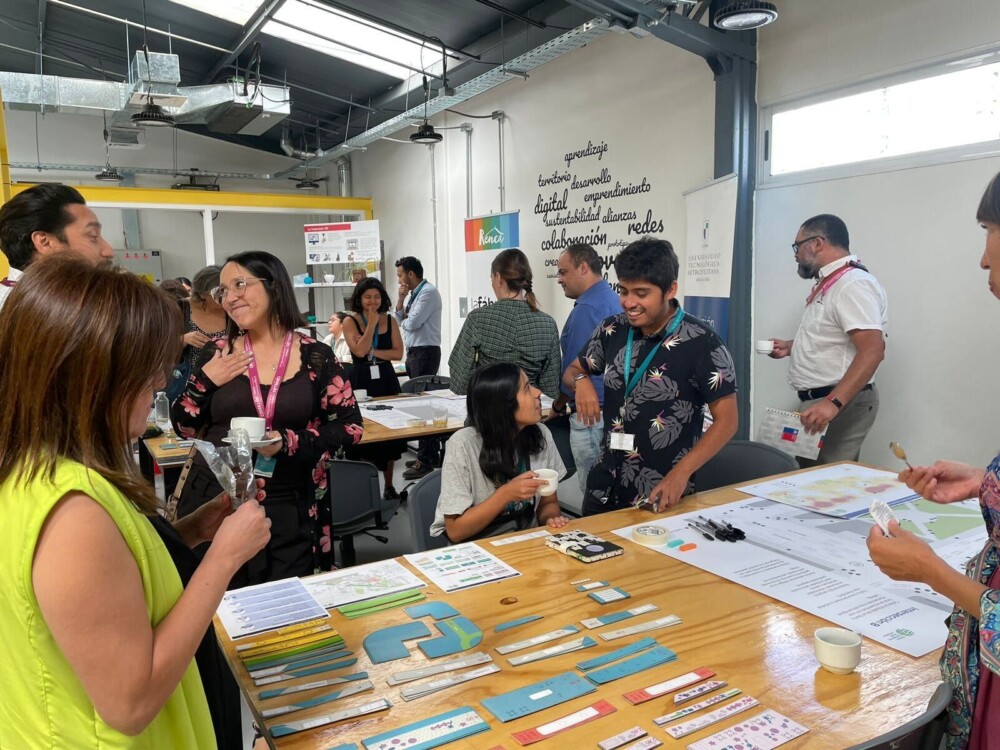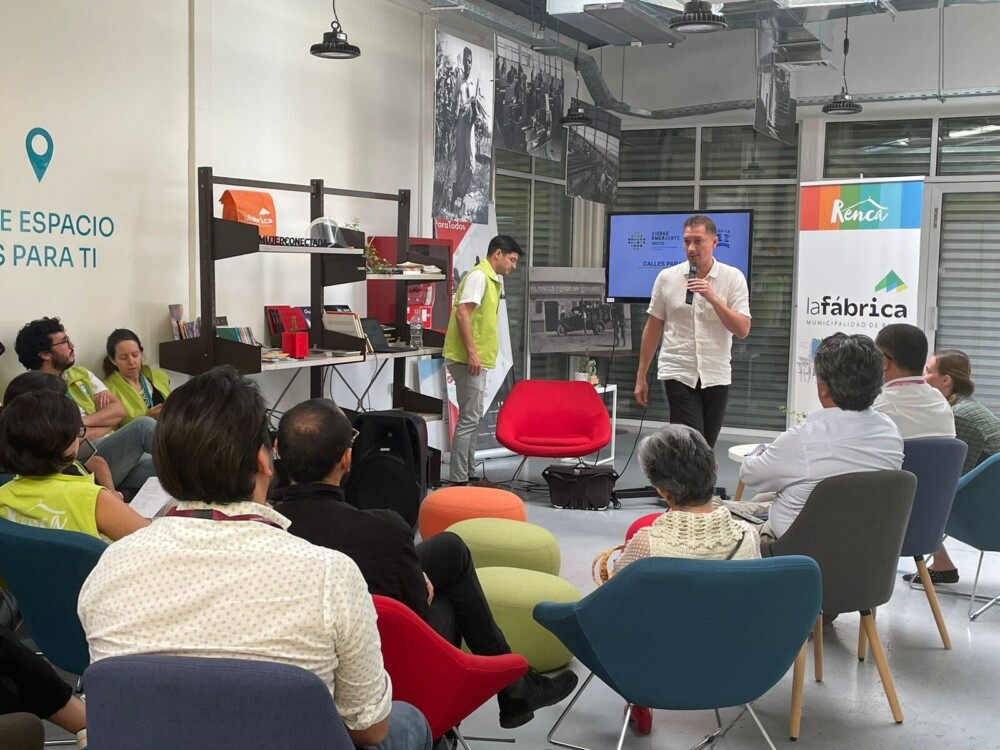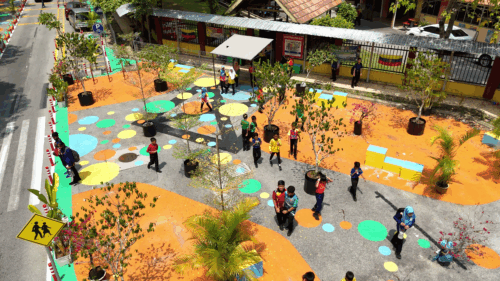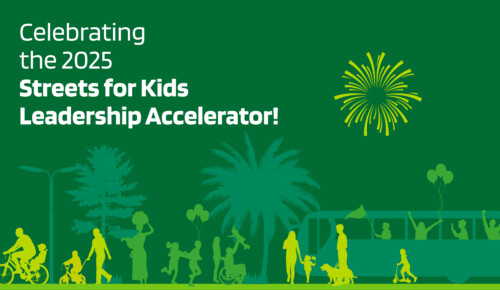Home to two schools, the Buzeta neighborhood of Cerrillos, Chile, has not always had adequate pedestrian and cycling infrastructure, making it difficult for students to safely walk or cycle to and from school.
To this end, the Global Designing Cities Initiative (GDCI) is working alongside Ciudad Emergente—a Chilean nonprofit dedicated to fostering walkability, safe cycling facilities, and road safety—to implement a Streets for Kids project in the Municipality of Cerrillos during 2023.
The GDCI Streets for Kids team is also providing technical assistance to the Municipality of Renca in partnership with Bernard van Leer Foundation’s U95 Academy.
In early March 2023, the Global Designing Cities Initiative hosted an interactive workshop with nearly 40 participants from both municipalities. La Fábrica de Renca housed the workshop—a former supermarket purchased by the city in 2017 and repurposed as a space dedicated to community innovation. Participants included public officials, and urban design and childhood development practitioners.
The GDCI facilitators introduced Streets for Kids concepts, inspired key actors from both municipalities, provided technical assistance, and gained support for the projects by highlighting the positive impact and benefits of the Streets for Kids projects.
The workshop also encouraged participants to share the challenges and opportunities both teams face. One session showcased case studies of previous Streets for Kids projects led by GDCI and Javier Vergara, Ciudad Emergente’s executive director, to envision what’s possible in their municipalities.
In another session, along with members of Ciudad Emergente and city staff, Streets for Kids Program Manager Francisca Benitez facilitated the interactive LaBolg workshop. Participants redesigned the map of LaBolg—a fictional city that GDCI practitioners created based on the experience and mobility issues faced by many cities around the world.
For the LaBolg session, four teams of participants from both municipalities were formed. Each group worked with a large printed map depicting intersections and contexts from the fictional city, LaBolg, and real-life intersections from both municipalities. The facilitators began by asking participants to introduce themselves, providing context on the different workshop materials, and asking teams to observe and analyze the existing conditions of the intersections at hand.
Afterward, groups discussed the challenges and opportunities, wrote them on post-it notes, and placed them on different areas of the map. Additionally, facilitators gave each team puzzle pieces to redesign the streets on the maps. The puzzle pieces represented key street sections such as bus lanes, cycle tracks, curb extensions for play, commerce, and pedestrian crossings.
Based on these discussions, teams worked together to redesign the intersection using the puzzle pieces. Facilitators supported participants to imagine streets ideal for children, consider phased approaches, and strategize the first steps to accomplish their vision.
Workshop leaders and facilitators took before-and-after photos of each team’s designs, and two representatives used these to present their team’s design approach to the rest of the participants.
At the end, there was excitement in the room; participants felt invigorated and inspired. Many related the fictional city maps to real areas in their own municipalities. Based on comments from the participants, it’s clear that this interactive activity, the case studies presented, and the gathering of the two municipalities made a positive impression on many city leaders and practitioners and enabled them to understand the huge potential impact that street redesign can have to improve quality of life and make their neighborhoods better.
Apart from Cerrillos and Renca municipalities in Santiago, Chile, Global Designing Cities Initiative is pleased to be working with the Bernard van Leer Foundation, FIA Foundation, and Fondation Botnar in nine other cities across Asia, Africa, Latin America and the Middle East.
